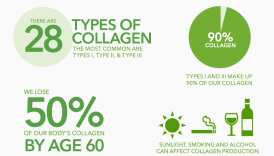Discover the Benefits of Switching to a Plant-Based Diet

In a world where health and environmental concerns are at the forefront of our daily conversations, adopting a plant-based diet has emerged as a compelling solution. This dietary approach not only promises numerous health benefits but also supports sustainable living and ethical treatment of animals. Transitioning to a plant-based diet can feel daunting at first, but it’s an opportunity to discover a vibrant and diverse palette of foods that nourish both the body and the planet.
- Discover the Benefits of Switching to a Plant-Based Diet
- Why Consider a Plant-Based Diet?
- Health Benefits of a Plant-Based Diet
- Reduced Risk of Chronic Diseases
- Weight Management
- Environmental Impact of Plant-Based Diet
- Reduction in Greenhouse Gas Emissions
- Conservation of Water Resources
- Animal Welfare and Ethical Considerations
- The Ethical Imperative
- Making Compassionate Choices
- Nutritional Aspects of a Plant-Based Diet
- Adequate Intake of Vitamins and Minerals
- Protein Sources in Plant-Based Diet
- Tips for Transitioning to a Plant-Based Diet
- Gradual Incorporation of Plant-Based Meals
- Seeking Support from Nutrition Experts
- Common Misconceptions about Plant-Based Diets
- Myth: Plant-Based Diets Lack Protein
- Myth: Plant-Based Eating is Expensive
Why Consider a Plant-Based Diet?
Many individuals have shared their transformative journeys with plant-based eating. For example, one friend reported significant improvements in her energy levels and a noticeable reduction in digestive issues after switching to a primarily plant-based menu. Here are a few reasons why exploring this way of eating could be beneficial for you:
- Health Benefits: Various studies have linked plant-based diets to reduced risks of chronic diseases such as heart disease, diabetes, and cancer.
- Environmental Impact: Eating plant-based contributes to a significant decrease in greenhouse gas emissions and water consumption.
- Ethical Considerations: Many feel a moral imperative to reduce animal cruelty and promote animal welfare.
Embracing a plant-based diet invites individuals to explore diverse foods and meal options, making it a journey filled with creativity and discovery. Let’s dive into the health benefits that motivate many to adopt this lifestyle!
Health Benefits of a Plant-Based Diet
As we delve deeper into the world of plant-based eating, it’s critical to highlight the impressive health benefits that this lifestyle can offer. Transitioning to a diet rich in fruits, vegetables, legumes, nuts, and whole grains not only enhances overall wellness but also plays a significant role in preventing myriad health issues.
Reduced Risk of Chronic Diseases
A growing body of research indicates that adopting a plant-based diet can substantially lower the risk of chronic diseases. For instance, a friend of mine, who was initially concerned about her family’s health, switched to plant-based meals and soon reported lower cholesterol levels and better blood pressure readings. Consider these key points:
- Heart Health: Plant-based diets tend to raise good cholesterol levels (HDL) and lower bad cholesterol (LDL), reducing heart disease risk.
- Diabetes Management: High fiber content helps regulate insulin levels, making it easier to manage blood sugar levels.
- Cancer Prevention: Consumption of antioxidant-rich foods like berries and leafy greens has been linked to a lower risk of certain types of cancer.
Weight Management
One of the most appealing aspects of a plant-based diet is its potential for effective weight management. With a focus on natural, whole foods, individuals often find it easier to maintain a healthy weight. Key benefits include:
- Lower Caloric Density: Plant-based foods usually have fewer calories but are higher in fiber, helping to keep you full without overeating.
- Nutrient-Rich Choices: Foods such as quinoa and chickpeas not only provide protein but also essential nutrients, making meals satisfying and nutritious.
- Improved Metabolism: Regular consumption of whole foods can boost metabolism, aiding in weight loss.
By embracing a plant-based diet, individuals have a powerful ally in achieving their health and weight management goals. As we continue, let’s explore how this lifestyle positively impacts the environment!
Environmental Impact of Plant-Based Diet
Transitioning to a plant-based diet comes with remarkable benefits that extend beyond personal health; it also plays a crucial role in protecting our environment. As concerns about climate change and resource depletion grow, many individuals are discovering how their food choices can contribute to a more sustainable future.
Reduction in Greenhouse Gas Emissions
One of the most significant environmental impacts of adopting a plant-based diet is the drastic reduction in greenhouse gas emissions. Research indicates that animal agriculture is responsible for approximately 14.5% of global greenhouse gas emissions. By choosing plant-based foods, individuals can significantly lower their carbon footprints. For instance, a colleague of mine calculated that by eliminating meat from his diet, he reduced his annual carbon emissions equivalent to driving a car for several thousand miles! Consider these points:
- Lower Emissions: Plant-based foods generally emit far fewer greenhouse gases than meat and dairy.
- Farming Practices: Shifting to plant farming can encourage more sustainable agricultural practices, including reduced deforestation and habitat loss.
Conservation of Water Resources
Water scarcity is another pressing issue that a plant-based diet can help address. The water required to produce animal products is staggering; it can take up to 1,800 gallons of water to produce just one pound of beef! In contrast, plant-based foods require significantly less water. Here are some eye-opening facts:
- Lower Water Footprint: For example, producing a pound of tofu requires about 300 gallons of water, highlighting the stark difference.
- Sustainable Choices: Incorporating more legumes, grains, and vegetables into our diets helps conserve vital water resources.
By embracing plant-based eating, individuals contribute to a healthier planet, ultimately fostering a more sustainable and resilient environment for future generations. Next, we will explore the ethical considerations surrounding animal welfare in relation to dietary choices.
Animal Welfare and Ethical Considerations
As we shift our focus from environmental impacts, it’s essential to discuss the ethical implications of our dietary choices, particularly regarding animal welfare. For many choosing a plant-based diet, this aspect acts as a primary motivator, sparking a deeper connection to the ethical treatment of animals.
The Ethical Imperative
When one considers the conditions under which many animals are raised for food, it becomes evident that the conventional animal agriculture industry often prioritizes profit over welfare. Friends of mine who have witnessed these conditions firsthand have been deeply affected, sharing how this awareness changed their eating habits altogether. Here are some key ethical considerations:
- Factory Farming: Many animals are raised in cramped, unsanitary environments, where they experience significant stress and suffering.
- Lack of Natural Behaviors: Animals in commercial settings are often denied the opportunity to engage in natural behaviors, impacting their quality of life.
Making Compassionate Choices
Switching to a plant-based diet is not just a dietary choice; it represents a commitment to compassion and respect for all living beings. Embracing this lifestyle can help individuals align their actions with their values.
- Growth of Alternatives: The market for plant-based alternatives is expanding, offering delicious options that mimic traditional animal-based products.
- Conscious Consumerism: Choosing a plant-based diet can also lead to broader ethical consumerism, encouraging brands to prioritize humane practices.
By adopting a plant-based diet, individuals actively contribute to the welfare of animals and make a powerful statement about their commitment to ethical living. Next, we will explore the nutritional aspects of this versatile lifestyle and how it can meet your dietary needs effectively.
Nutritional Aspects of a Plant-Based Diet
Having established the ethical and environmental benefits of a plant-based diet, it’s time to delve into its nutritional aspects. A common misconception is that plant-based eating may lack essential nutrients. However, when planned correctly, this diet can provide adequate levels of vitamins, minerals, and even protein, vital for maintaining health.
Adequate Intake of Vitamins and Minerals
Plant-based diets are packed with colorful fruits and vegetables that are rich in essential vitamins and minerals. For instance, when my sister transitioned to plant-based eating, she became more conscious of her nutritional intake and discovered a variety of sources that enriched her diet. Key vitamins and minerals to focus on include:
- Vitamin B12: Generally found in animal products, this crucial vitamin can be obtained through fortified foods or supplements.
- Iron: Plant sources include lentils, chickpeas, and quinoa, which, when combined with vitamin C-rich foods, enhance absorption.
- Calcium: Leafy greens, almonds, and fortified plant milks are excellent sources.
Protein Sources in Plant-Based Diet
A common concern about plant-based diets is the adequacy of protein intake. However, there are numerous plant-based proteins available. Consider these protein-rich options:
- Legumes: Beans, lentils, and peas provide substantial protein and fiber.
- Nuts and Seeds: Almonds, chia seeds, and hemp seeds are nutritious choices that also offer healthy fats.
- Whole Grains: Quinoa, farro, and brown rice contribute to both protein and energy needs.
With a little creativity, planning, and awareness, a plant-based diet can not only meet but exceed nutritional requirements. As we continue, let’s explore some practical tips for those looking to transition to this enriching lifestyle.
Tips for Transitioning to a Plant-Based Diet
Having explored the nutritional benefits of a plant-based diet, it’s time to discuss practical steps for making this transition smoother and more enjoyable. Adopting a new way of eating might feel overwhelming, but by following a few strategic tips, anyone can ease into this lifestyle effectively.
Gradual Incorporation of Plant-Based Meals
A helpful approach is to gradually integrate more plant-based meals into your routine. Rather than an abrupt switch, start by designating certain days as “plant-based days” or focusing on plant-based dinners several times a week. For instance, when my brother decided to try this lifestyle, he began with Meatless Mondays, which allowed him to experiment with various vegetarian recipes without feeling deprived. Consider the following strategies:
- Substitutions: Replace meat with plant-based proteins like tofu, tempeh, or legumes in your favorite dishes.
- Explore New Recipes: Try incorporating new grains, vegetables, and legumes into your meals to keep things exciting.
- Focus on Variety: Aim for colorful plates filled with different textures and flavors to make meals nutrient-rich and satisfying.
Seeking Support from Nutrition Experts
Navigating dietary changes can be easier with support. Consulting with a nutrition expert can provide personalized guidance.
- One-on-One Consultations: Meeting with a registered dietitian can address specific dietary needs and help plan balanced meals.
- Workshops and Classes: Many communities offer workshops focusing on plant-based cooking, providing a great platform to connect with like-minded individuals.
- Online Communities: Joining online forums can offer motivation and tips from others who are on a similar journey.
By adopting a gradual approach and seeking expert advice, transitioning to a plant-based diet can become a fulfilling adventure. Next, let’s tackle some common misconceptions surrounding plant-based eating that may hold some back from fully embracing this lifestyle.
Common Misconceptions about Plant-Based Diets
Transitioning to a plant-based diet can sometimes come with misunderstandings and myths that may discourage individuals from fully embracing this lifestyle. Addressing these misconceptions is crucial, as many are based on outdated beliefs or misinformation.
Myth: Plant-Based Diets Lack Protein
One of the most pervasive myths is that plant-based diets don’t provide enough protein. This misconception can be daunting for those concerned about muscle maintenance and overall health. In reality, plant foods can be excellent sources of protein! For example, when a friend of mine transitioned to a plant-based diet, she found new sources of protein, such as quinoa, lentils, and chickpeas, which kept her energy levels high and muscles strong. Key protein sources include:
- Legumes: Beans, lentils, and peas are rich in protein and fiber.
- Nuts and Seeds: Almonds, chia seeds, and hemp seeds not only pack protein but also healthy fats.
Myth: Plant-Based Eating is Expensive
Another common misconception is that eating plant-based is prohibitively expensive. While it’s true that some specialty products can be pricey, focusing on whole foods like beans, rice, and seasonal vegetables can be quite economical. Remember, simple meals can be delicious and cost-effective:
- Batch Cooking: Preparing meals in bulk can save time and money.
- Local Markets: Shopping at local farmers’ markets often yields fresh produce at lower prices.
By dispelling these myths, individuals may feel more empowered to explore and enjoy the numerous benefits of a plant-based diet. Next, let’s wrap up our exploration of this enriching lifestyle by summarizing the key points discussed throughout the article.





